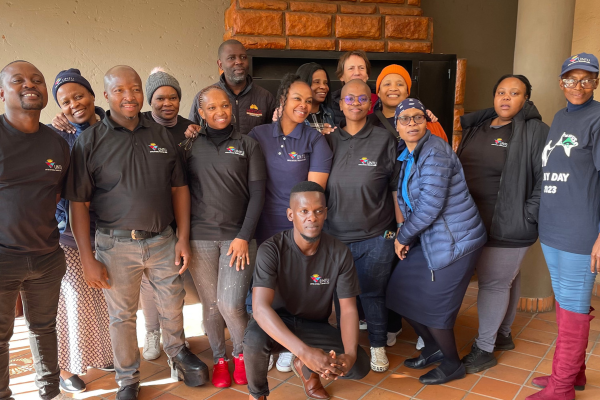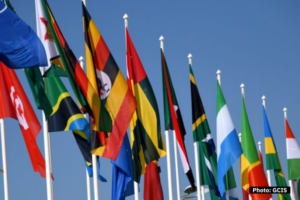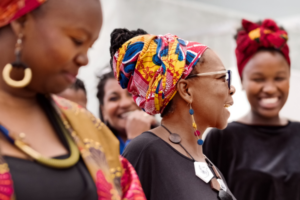UNTU members at the LRS learning reflection
ILO Convention 190 and the Code of Good Practice on the Prevention and Elimination of Harassment in the World of Work have opened up further spaces for the LRS to support trade unions in promoting the rights of LGBTIQ+people. Convention 190 (C190) highlights the importance of addressing violence against marginalised groups. LGBTIQ+ people face prejudice and discrimination, which increases the risk of violence. The LRS partnerships with gender equality teams have seen progress in achieving trade union inclusion missions. Union activists are better equipped to raise awareness of rights and the need for policies, bargaining demands and strategies that can put in place measures to support and protect LGBTIQ+ people in the world of work.
The United National Transport Union (UNTU), a male-dominated union, has taken the lead in working to create a safe environment for LGBTIQ+ workers. Change often arises from a single spark or a tiny seed. If nurtured and cultivated, it can blossom into something powerful and transformative. At UNTU, this seed is embodied in the LRS resources and learning intervention for gender activists that has helped them to transform personally, organisationally and broadly.
"UNTU has become a safer space, thanks to the awareness raised in our meetings with LRS. Recently, during a training session, I faced prejudice as an LGBTI+ member, which unfortunately is not new to me. A colleague became aware of my experience through the processes with LRS. Another LGBTQ worker approached me, expressing that my activism in the union empowered him to be himself."
UNTU activist
This is a powerful example of what can happen when individuals work together towards a common goal in their place of work. Despite some challenges, the impact is felt within the organisation and in broader society.
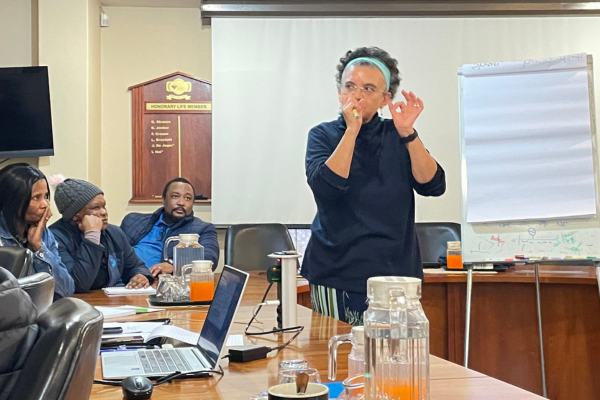
Thinking of the LRS as a seed or tool, how did the organisation shift your role personally and in the broader ecosystem?
Who are you in it?
The journey of change begins with individuals acknowledging their roles within an organisation.
A core group of UNTU members are LGBTI+ rights and inclusion advocates. They recognise and challenge their own heteronormative behaviours and practices and are aware of the role of C190 in advocating for the rights of workers and job seekers who are LGBTIQ+. They are committed to promoting a more inclusive culture in the union and to supporting LGBTIQ+ people.
LGBTIQ+ members have been placed at the forefront of the union’s outreach efforts to ensure members understand its commitment to ending violence, harassment and discrimination in the workplace.
In talking to Letsema members, UNTU activists recognise the crucial support role of parents in ending homophobia.
Catalysing action - Three major shifts
UNTU’s transformation has its roots in FEDUSA, which inspires affiliates to create an inclusive world of work. UNTU’s rallying point is the Federation’s LGBTI Rights Resolution and Convention 190.
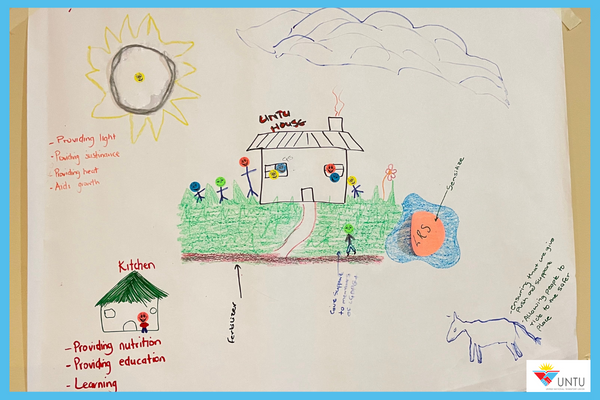
1. Trade union activists are leading the way
Union representatives have become knowledge bearers, sharing what they have learned in LRS spaces with their peers. They drive cultural change within UNTU by supporting LGBTIQ+ people and creating awareness among branch union members.
“In the trade union branches where gender coordinators are based, we have discussions with trade union representatives. The branch is the focal point that spreads the fire to the rest of the organisation.”
“We speak out against discrimination and challenge heteronormativity. There is less discrimination, and the culture is changing."
"We consult widely and discourage use of offensive terms. We ensure that all members contribute to identifying and recognising discriminatory terms.”
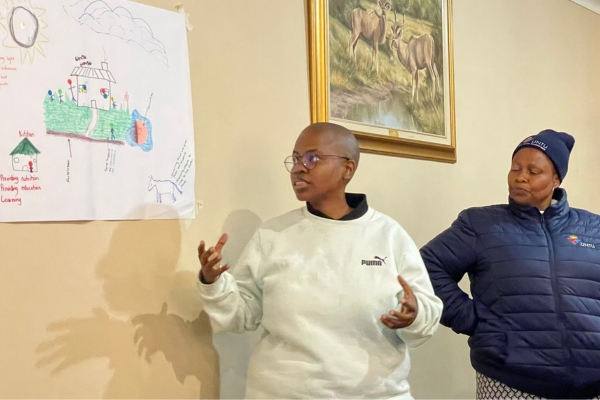
2. A focus on new members and job seekers
There is a particular focus on newly employed LGBTQI people and job seekers, recognising that younger members are often more confident in asserting their identity. The experience of rejection and lack of support from home, combined with discrimination, bullying and violence in the school and community, puts young LGBTQ+ people at a disadvantage when seeking work. The union branch structure serves as a space for discussing issues and solutions. But we need a wider audience and strong leadership support.
“Even if our work has not reached higher structures within the union and the union seems to be losing value in the community, we can see that change is happening in our personal lives, and we can still add value at different levels.”
"I was approached by another LGBTIQ+worker who told me that he had always felt oppressed but felt more empowered to be himself because of my visibility and the vocal support within the union."
"I have gained the confidence to speak out outside the workplace. Many LGBTIQ+ people come to me for advice as a trade unionist in my community."
3. Personal transformations and impact
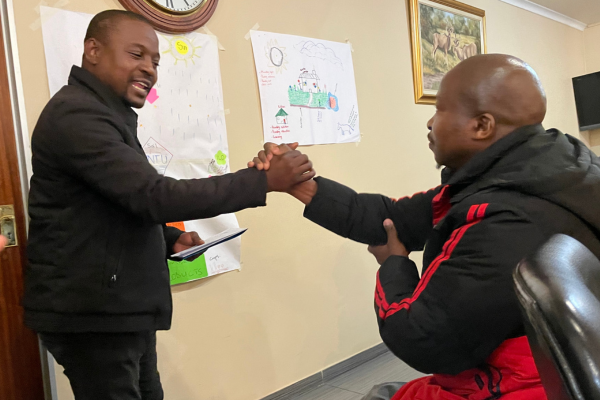
Activists have experienced a personal transformation. Increased visibility of LGBTIQ+ and awareness have empowered individuals both inside and outside the union. Members have taken on advocacy roles in their families and communities.
"I have an LGBTIQ+ nephew whose father was not supportive. After hearing how the Letsema community group member supported her gay son, I spoke to my brother to advocate for his son."
" I have a niece who is LGBTIQ+ and who has been the victim of discrimination from our family. I support her, open my home to her and helped her get back on her feet."
"My brother came out as LGBTIQ+ but was discriminated against by our family. I was his advocate, and he was able to marry his partner. This training reaches into our personal lives."
Challenges in the inclusion journey
The journey towards greater safety and inclusion has not been without its challenges. UNTU has made a concerted effort to eliminate offensive terms for LGBTIQ+ people and people with disabilities, recognising the importance of sensitive language use.
"True, the soil is fertile. How we nurture it is up to us. This is one of the best programmes. We need to look inward and correct ourselves. We focus more on worker discipline, but we forget that we need to educate the workers, not just the union representatives. That is how our constituencies can win. As UNTU we are behind, but from today we will include this information in our training manuals. With the help of my gender coordinators, I will use what I've learned to write my manual. My comrades will hold me accountable."
Mandlakhe Zondo. Deputy General Secretary of UNTU
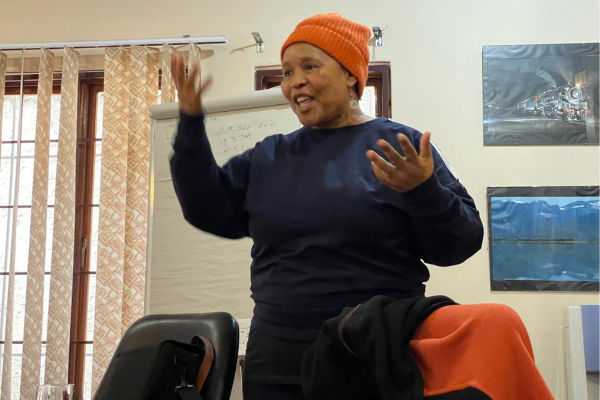
The journey ahead
While significant progress has been made, much work remains. It is crucial to bridge the gap between public and private spaces, and to tackle gender stereotyping and discrimination. More formal and informal education is needed to maintain the momentum. The commitment of UNTU members to support LGBTIQ+ workers’ rights exemplifies the potential for positive change when individuals unite to champion a workplace issue.
RELATED CONTENT
Resource: Workplace rights belong to everyone: Negotiating for inclusivity and against discrimination
Video: Why I feel safe at work | Unions negotiating for inclusion in the world of work
Video: Negotiating for inclusivity and against discrimination | FEDUSA’s LGBTIQ+ resolution
Read our interview with UNTU worker representative:
Negotiating inclusivity: The experience of a queer workers’ representative


